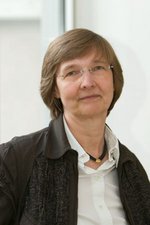
Research Projects and some First Results of nwu-essen
The research carried out by “nwu-essen focuses on the teaching and learning of science (specifically: chemistry, biology, physics and primary-level science education) on the individual level, class level, and school and school-system level. The data collection methods employed by Prof. Elke Sumfleth (speaker of the graduate school), Prof. Hans E. Fischer (speaker of the DFG Graduiertenkolleg) and their colleagues include video recordings, teacher surveys, interviews, questionnaires and tests. Randomized controlled studies on learning and instruction shed light on students individual abilities, learning behaviours and factors influencing learning outcomes. Instructional psychology offers well established methods for these studies, such as laboratory and field experiments with behavioural observations in real and computer-simulated settings, tests and questionnaires. Both intra-project and inter-project networking are carried out in order to promote the development of instructional theory from different disciplinary perspectives. The DFG-funded PhD students in the research training group, in particular, are called upon to build networks between the projects with their dissertations.
The research carried out on the individual level of learning and instruction follows the pattern of detecting deficits, subsequently testing constructive ideas for improvement, and finally subjecting these ideas to empirical evaluation. For example, previous research has indicated that, although classroom experiments conducted by the students themselves are very popular in science education, the learning effect of such experiments appears to be rather limited. Against this background, “nwu-essen wants to identify the specific shortcomings of classroom experiments and to develop and evaluate measures for improvement. In another line of research, based on computer-based experimentation studies, it has been shown that learning outcome can be fostered by promoting strategic learning behaviour in students. Similar results were found for experimentation in small groups. It was shown, in addition, that computer-animated process simulations are more effective than single pictures for enhancing comprehension of chemical concepts. Finally, the research results indicate that the texts and illustrations in many German chemical textbooks display certain generic weaknesses: consequently, when these materials are used, the development of strategic learning skills have to be promoted.
Research on the class level, using video recordings of real-life science classes at school, indicates that students are asked, as part of their class work, to do a lot of problem-solving. Of course, this is an activity which has the potential to improve learning outcome. However, in many cases and situations, the problems assigned to the students are either too difficult or not challenging, either of which situation hampers the students learning. For this reason, competence models were developed and empirically scrutinized in order to adapt the difficulty of physics problems to the level of competence of individual students. In addition, analyse of video recordings of actual class work shows that, although teachers often aim to connect different science issues in their classroom instruction, this teaching strategy does not produce positive results on a regular basis.
Research carried out on the school and school-system level indicates that there are subject-specific cultures of learning in schools and that science teaching represents a culture of its own. Apparently, cooperation between science teachers is rare. However, a study evaluating the HIGHSEA Project of the Alfred-Wegener-Institute at Bremerhaven has shown that, beyond cooperation within a school, external cooperation between a school and a research institute has great potential to foster students science learning. Finally, a specific advanced training programme aimed at improving the professionalism of school teachers was developed and empirically evaluated. The training is based on the observation that many teachers focus too much attention on the content of teaching and too little on student learning processes.

